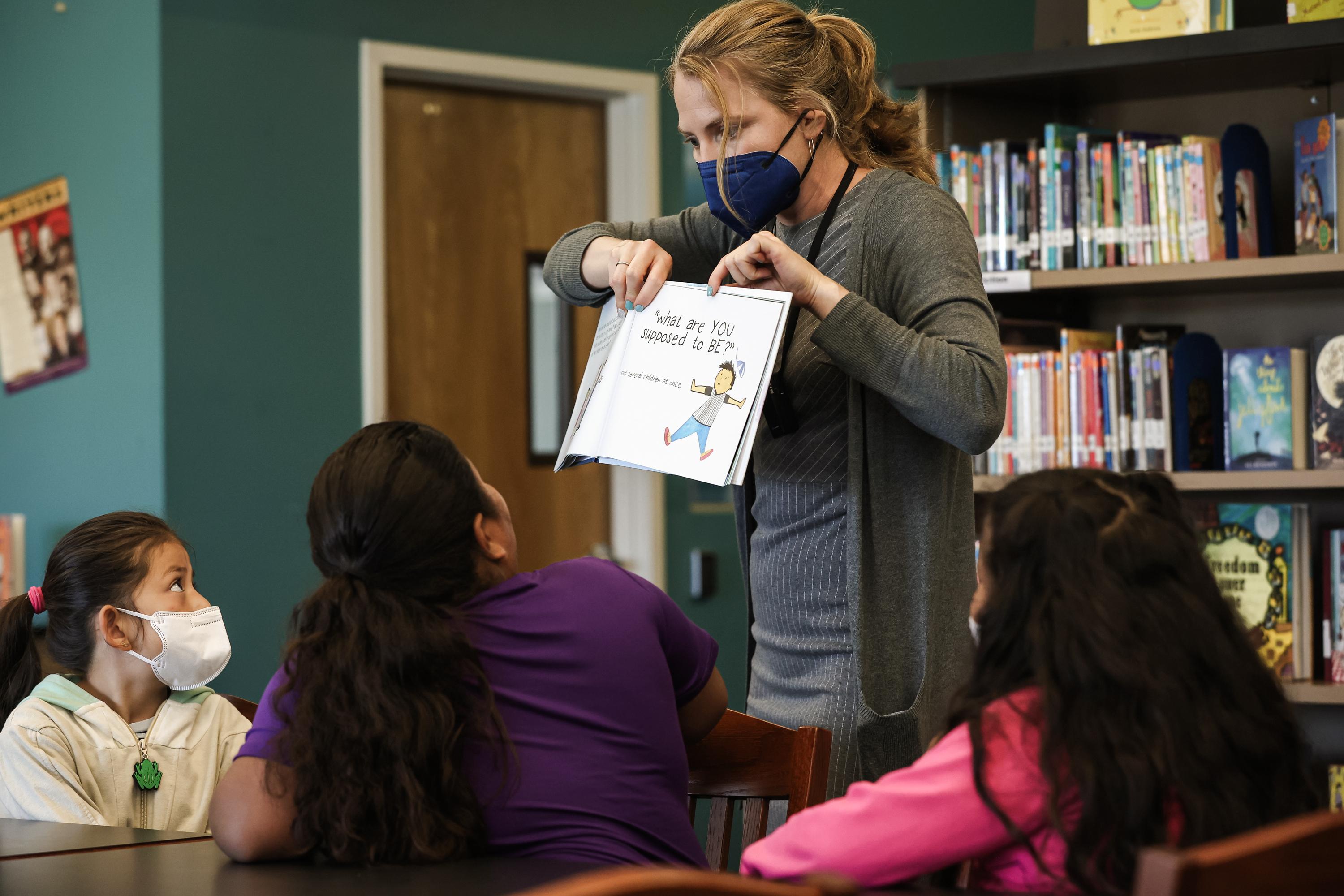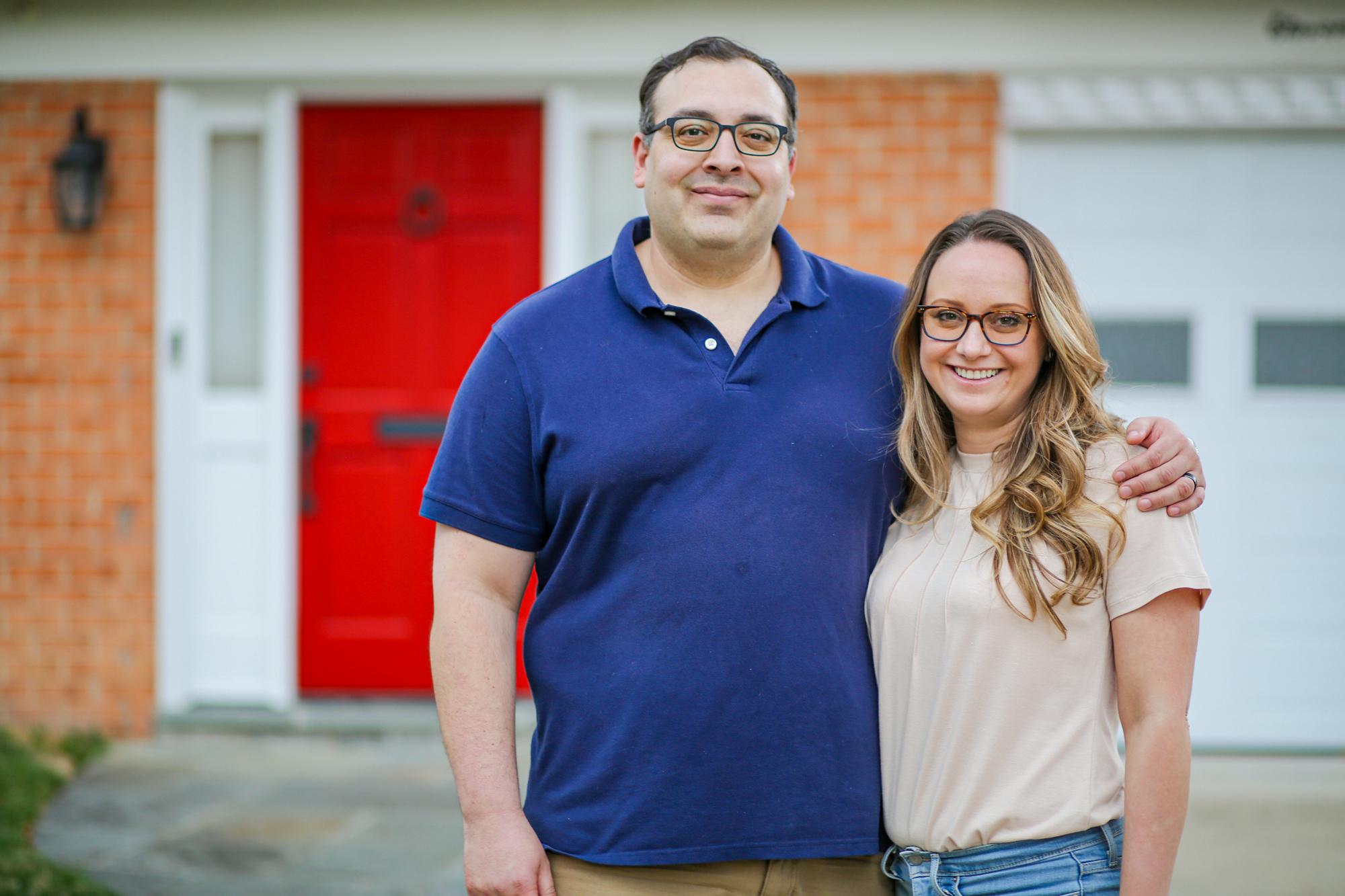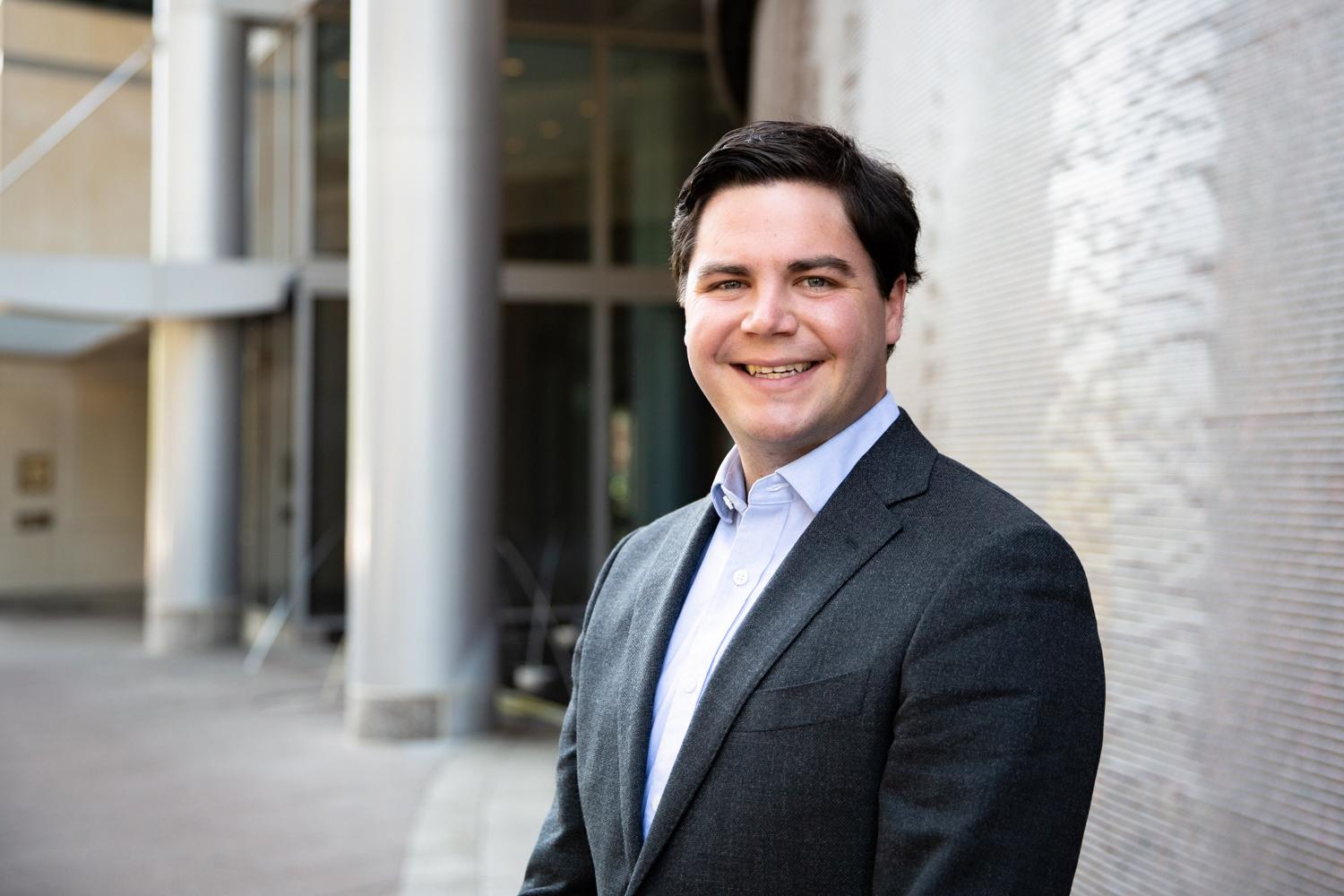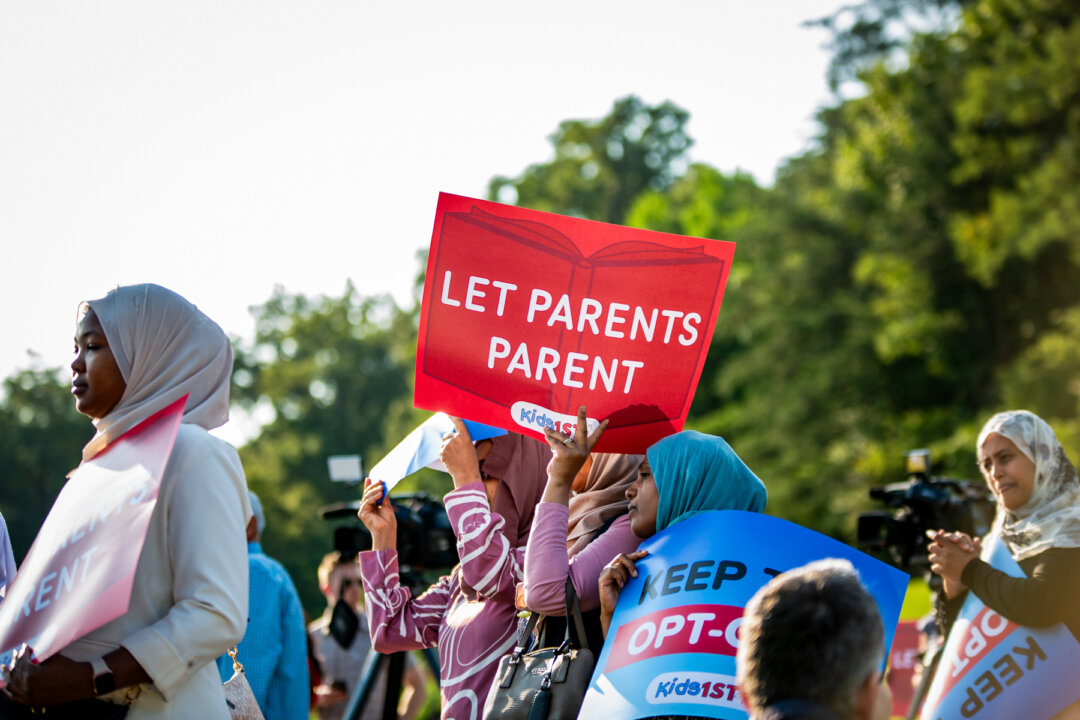An interfaith group of parents says forcing elementary school children to participate in instruction that contradicts their religious beliefs on sex and gender violates their First Amendment rights.
The group in Maryland’s largest school district is hoping that the U.S. Supreme Court agrees.
The Montgomery County Board of Education drew criticism in March 2023 when it notified parents that they will no longer be able to opt their elementary-level students out of instruction involving books on gender and sexuality.
A list of LGBT-themed storybooks was added to the district’s curriculum for pre-kindergarten through fifth grade in November 2022. The books included titles such as “Pride Puppy,” which describes what a child might see at a Pride parade; “What Are Your Words,” which centers on a child whose pronouns change “like the weather”; and “Love, Violet,” a story about a same-sex playground romance.
At the time, the county assured parents that they would retain the right to exclude their children from any lessons concerning such materials. The policy change that came months later retracted that right and prompted local parents of diverse faiths to sue.
“The First Amendment has long been recognized to protect the right of parents to direct the religious education and upbringing of their children, and the government is not allowed to substantially interfere with that,” Mike O’Brien, counsel at the Becket Fund for Religious Liberty, told The Epoch Times.
O’Brien will make that argument on the parents’ behalf on April 22, when their case goes before the Supreme Court in the case of Mahmoud v. Taylor. They are seeking the restoration of their right to direct and protect their children’s religious beliefs, O’Brien said.
Lawyers for the school, in a court filing, said that the books form a small part of the curriculum and contend that the books are “archetypal stories that touch on the same themes introduced to children in such classic books as Snow White, Cinderella, and Peter Pan.”
Parents Push Back
It didn’t take long after the Montgomery school board announced its new no-opt-out policy for the protests to start.
Angry crowds bearing signs with messages such as “Parents’ Rights Matter” and “Education Over Indoctrination” became a regular occurrence outside the board’s public meetings, where parents voiced their frustration.
“While inclusivity is important, it’s equally crucial to respect and accommodate the cultural and religious values of diverse families,” Christian mother Salem Peter told the board at its June 27, 2023, meeting.

“Introducing sexual behavior and preference at an early age raises legitimate concern for us parents. Parents should have the freedom to decide when and how they address those topics based on our cultural, religious, and personal beliefs.”
The school board has defended its policy change as a step toward inclusivity, citing the potential stigma that certain students could feel if their classmates were excused from LGBT-themed activities.
Sayed Wasti, a local Muslim mother who removed her child from school because of faith-based bullying, said the board’s concern seemed one-sided.
“I’m afraid to say that we are failing as a society where we are concerned about serving one community’s emotional and physical well-being while ignoring the same needs for the other communities,” Wasti said at the same school board meeting.
“Every single child deserves to feel safe, respected, valued, and seen. … You accept people’s beliefs about their gender identity. But then, why do you marginalize others for their religious beliefs?”
Wasti is not the only Montgomery County parent who has pulled her child out of public school.
Jeff and Svitlana Roman, who are Roman Catholic and Ukrainian Orthodox, respectively, removed their son from school when the lower courts denied their request to put the district’s policy change on hold. Muslim parents Tamer Mahmoud and Enas Barakat, additional plaintiffs in the lawsuit, felt compelled to do the same.
But not every family is in a position to homeschool their children or send them to a private school, O’Brien noted.
“That is not an option, just financially and resource-wise, for a majority of parents,” he said.
Those who have kept their children in public schools are still waiting for a court to step in, O’Brien said.
Located just north of Washington, Montgomery is Maryland’s most populous county at about 1 million residents.

Lower Court Ruling
State law requires school districts to allow parents to opt out of education concerning “family life and gender identity”—another reason that parents say the district’s policy is unlawful.
“What the parents are asking for here is not new,” O’Brien said. “What’s new is Montgomery County’s real extreme-outlier approach to cutting parents out to impose one-sided ideological instruction on issues that strike at the heart of parents’ ability to transmit the faith.”
The school board has argued—and the lower courts have affirmed—that as the district’s curriculum does not coerce students to change their beliefs, it does not burden their religious practice.
“There’s no evidence at present that the Board’s decision not to permit opt-outs compels the Parents or their children to change their religious beliefs or conduct, either at school or elsewhere,” a panel of the U.S. Court of Appeals for the Fourth Circuit held in a 2–1 decision denying the parents’ request for a temporary restoration of the former opt-out policy.
The majority pointed to the “threadbare” record of how the books were being used in schools in drawing that conclusion.
O’Brien, however, attributed the scant record to the board’s vague and varying representations of how the books are implemented.
In court filings, the board contends that the books are for individual reading, group read-alouds, and “other educational activities designed to foster and enhance literary skills.”
Yet O’Brien noted that the board has also “admitted multiple times in court and in its own documents that teachers are required to use this instruction—it’s not optional.”

As evidence, he pointed to internal guidance that the school district provided teachers on how they should respond to objections raised by students and parents over the LGBT materials.
In one example, teachers were encouraged to “disrupt the either/or thinking” of students who voiced opposition to same-sex relationships by stating, “Actually, people of any gender can like whoever they like.”
Meanwhile, if a parent were to ask why their child should learn about such topics at school, teachers could respond that “students are already learning about gender and sexuality identity in myriad ways,” and that “creating a more tolerant, inclusive, and accepting school environment teaches all children to recognize and resist stereotypes.”
Those suggestions sparked the concern of elementary school principals across the district, according to a November 2022 memo from the Montgomery County Association of Administrators and Principals to the school district.
The memo cited “numerous concerns” raised by teachers, principals, and community members regarding the books’ age-appropriateness and purpose in the curriculum. Teachers also found the guidance’s proposed responses to be “shaming” and “dismissive” of students’ religious views.
The lone dissenting Fourth Circuit judge, A. Marvin Quattlebaum Jr., likewise found the board’s instructions and opt-out prohibition to be constitutionally problematic. The board, he held, was effectively requiring parents to choose between “compromising their religious beliefs or foregoing a public education for their children.”
Quattlebaum also took issue with the board’s assertions that such compromises were part and parcel of sending one’s child to public school.
“The board’s arguments, which the district court adopted, really view the parents’ religious objections to the texts as less important than the board’s goals to improve inclusivity for the LGBTQ+ community,” the judge wrote. “But this is precisely the sort of value judgment about parents’ religious claims that courts must not make.”

High Court to Decide
With the U.S. Supreme Court soon to weigh in, outside parties have been lining up to join the debate.
The American Civil Liberties Union (ACLU) has defended the Montgomery school board’s policy as “religion-neutral” in that it applies to those of all faiths, regardless of the reason for their objection.
“Religious liberty is fundamentally important, but it doesn’t force public schools to exempt students from secular lessons that don’t align with their families’ religious views,” Daniel Mach, director of the ACLU’s Program on Freedom of Religion and Belief, said.
Mach said that allowing students to opt out of such lessons would “wreak havoc on public schools, tying their hands on basic curricular decisions, stoking divisiveness and disruption, and undermining a core purpose of public education—to prepare students to live in our pluralistic society.”
On the other side, John Bursch, senior counsel and vice president of appellate advocacy for Alliance Defending Freedom, said parents have “the fundamental right to make decisions” about their children’s education and upbringing, and “government officials may not second-guess” those decisions.
“Today, many school officials act as if their job is to replace parents and their beliefs—not support them,” Bursch said. “Our Constitution forbids schools from indoctrinating children with uniform views on sexuality and gender, views that are hotly debated, in conflict with their families’ religious beliefs, and that turn children into lifelong medical experiments and patients.”
As the court hears arguments from both sides, the debate will echo outside the court’s walls as attendees of opposing rallies make their voices heard.
For the sake of his clients, O’Brien said he hopes the decision is swift, “so [the parents] don’t have to worry day-in and day-out about their religious direction of their children being substantially interfered with.”
The Supreme Court will issue its ruling by the end of June, when its term finishes.




